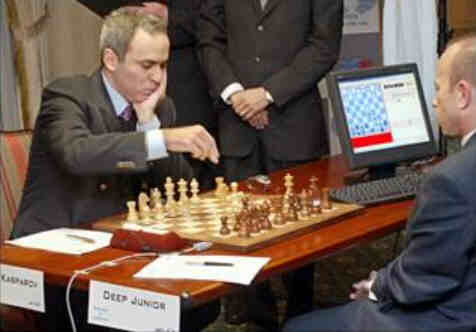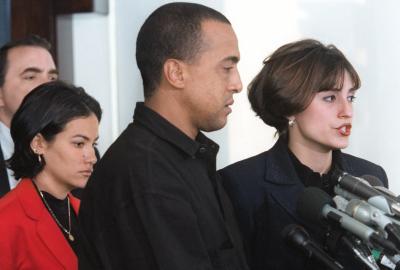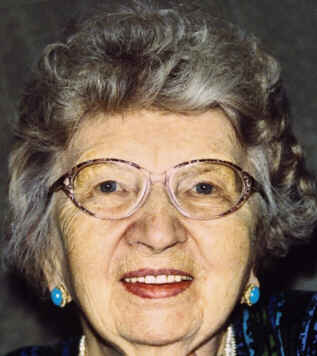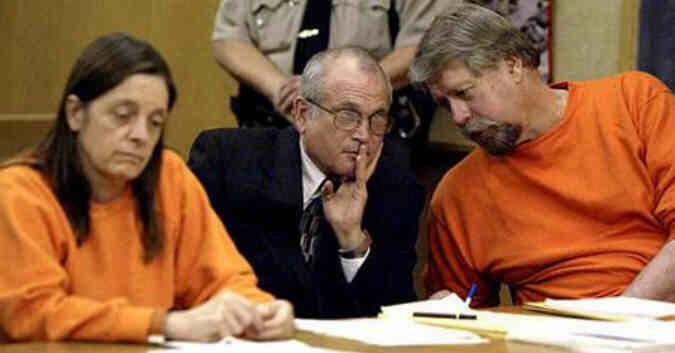| <<
Jan 25| HISTORY
“4” “2”DAY
|Jan 27
>> Events, deaths, births, of JAN 26 [For Jan 26 Julian go to Gregorian date: 1583~1699: Feb 05 — 1700s: Feb 06 — 1800s: Feb 07 — 1900~2099: Feb 08] |
 On
a January 26: On
a January 26: 2003 World chess champion Garry Kimovich Kasparov [13 April 1963-], with White, defeats computer program Deep Junior (who has a human to physically move the pieces) in the first game of a match which will end in a draw with its 6th game on 07 February 2003 (28 Jan Game 2 — 30 Jan Game 3 — 02 Feb Game 4 — 05 Feb Game 5): 1.d4 In recent years Kasparov usually only plays this instead of his customary 1.e4 when he has prepared some special opening variation. 1. ... d5 2.c4 c6 3.Nc3 Nf6 4.e3 e6 5.Nf3 Nbd7 6.Qc2 Bd6 7.g4 a move credited to US Champion Alexander Shabalov, although it was first played by his Latvian countryman Alexei Shirov against Thorhalsson in 1992. it leads to sharpest lines of the Semi-Slav Anti-Meran. It has since been played over 500 times, with only 22% of the games resulting in draws. 7. ... dxc4 [... Bb4 might have been better] 8.Bxc4 b6 9.e4 e5 Surprisingly Deep Junior is out of book here and takes 20 minutes for this move, which may be worse than ... Bb7. 10.g5 Nh5 11.Be3 0-0 12.0-0-0 Qc7 13.d5 [13.Be2 exd4 14.Nxd4 Nf4 15.Kb1 Be5 16.h4 Nc5 17.h5 Nce6 18.g6 Nxd4 19.Bxd4 Be6 20.gxh7+ Kxh7 21.Bf3 Rad8 22.Be3 Rxd1+ 23.Rxd1 Rd8 24.Ne2 Rxd1+ 25.Qxd1 c5 26.Qd2 Nxe2 27.Bxe2 Qd6 Ward,C-Gausel,E/Copenhagen 2002/CBM 88/[Wells]/1/2-1/2 (58); RR 13.Kb1 g6 14.Be2 exd4 15.Nxd4 Nf4 16.h4 b5 17.Bxb5 Bb7 18.h5 Be5 19.Bc4 Nb6 20.Be2 Rae8 21.hxg6 fxg6 22.a4 Nxe2 23.Qxe2 Qf7 24.f4 Bh8 25.e5 c5 26.Ndb5 Qb3 27.Nd6 Bxh1 Hillarp Persson,T-Borgo,G/Batumi 1999/CBM 74/1-0 (37)] 13...b5?! 14.dxc6 bxc4 15.Nb5! Kasparov goes for the maximum result. [ 15.cxd7 Bxd7 16.Qd2 Bg4 17.Qxd6 Qxd6 18.Rxd6 Bxf3 19.Rg1+/= ] 15...Qxc6 16.Nxd6 Kasparov would win this position easily against any human being. 16...Bb7 Black is hoping for counterplay against the pawn on e4. 17.Qc3! [ 17.Nf5 achieves nothing 17...Qxe4 18.Ne7+ Kh8 19.Qxe4 Bxe4 20.Rxd7 Bxf3= ] 17...Rae8?! Gives a rook for a knight in order to save the pawn on e5. [ 17...Rab8 18.Nxe5 Nxe5 19.Qxe5 Qa4 looks better.] 18.Nxe8 Kasparov thinks for 10 minutes before making this move, once he is confident that Deep Junior's giving up of the rook is a sign that it is in trouble and not that it has set a trap. 18. ... Rxe8 19.Rhe1 Qb5 20.Nd2 Rc8 21.Kb1 Nf8 22.Ka1 Ng6 23.Rc1 Ba6 24.b3! cxb3 25.Qxb3 [The Queen sacrifice 25.Qxc8+ Bxc8 26.Rxc8+ Nf8 27.Nxb3 might have been an easy and showy win against a human. But leaving a computer's queen on an open board runs the risk that the computer mught find an arcane mate or perpetual check] 25 ... Ra8 26.Qxb5 Bxb5 27.Rc7 Deep Junior resigns. (All games are in New York, and are supposed to start at 15:30 EST, though this one was delayed 25 minutes to get the computer running. The time control is 40 moves in 2 hours followed by 20 moves in one hour then 30 minutes for the rest of the game.) |
| 2001 A blind cod has swum into
the same net about 35 times in the Norwegian fjord Hardanger and is only
alive because a soft-hearted fisherman frees him each time. "He's too
thin to eat and he's in bad condition," says Harald Hauso, 69, "And I
feel a bit sorry for him." The cod, blind in both eyes and weighing about 2.5 kg, first swam into Hauso's hooped nets in March of 2000. In the nets are tiny crabs and starfish, on which the cod feeds. "He's found out that it's an easy place to find food. And he knows I let him go every time. Also, maybe he feels safe because the net protects him," Hauso says. He says that a marine park from nearby Aalesund offered today to let the fish retire in the safety of its aquarium. "I've said 'yes' to the offer. It'll be a good place for him to be a pensioner," he says. Hauso would catch the cod for the 40th and last time on 7 February, and see it off to Aalesund, about 300 km north of Hardanger, where it is to share a private pool at the marine park with a Big Mama, a short-sighted halibut.  09
Feb 2001 update: 09
Feb 2001 update:A blind cod was clinging to life today after surviving a critical medical operation and 40 nettings by a Norwegian fisherman. The celebrity fish was caught off Norway for the 40th and final time on 07 Feb by Harald Hauso, 69, who gave up the chase and sent it to retire in a private pool in a marine park in Aalesund. Almost entirely blind in both eyes and weighing a meager 4-6 lbs., it was touch and go whether it would survive the 190-mile journey north from the Hardanger fjord where it was caught. The cod had to undergo an emergency operation to remove gas which built up inside its body because of its repeated capture. "He had too much gas inside, so we put the needle inside and took the gas out," Jan Einarsen, director at Aalesund's Atlantic Sea Park, told Reuters. He said the cod — nicknamed Balder after a handsome god in Norwegian mythology — was also stressed after being trapped and released so many times. Einarsen said his biggest concern was the fish's loss of appetite, despite being tempted by squid, shrimp, herring and mussels. The cod first blundered into Hauso's nets last March and returned almost every week, apparently attracted by the smell of the nylon. Hauso repeatedly freed the scrawny fish because it was too thin to eat and he felt sorry for it.  ^
2000 Elian met
grandmas. ^
2000 Elian met
grandmas.Shipwreck orphaned survivor Elián González, 6, meets for 90 minutes his grandmothers at the Miami Beach home of Sister Jeanne O'Laughlin, president of Barry University, chosen as a neutral venue for the meeting by the US government which pressured the boy's great-uncle to whose home (besieged by the media and anti-Castro activists) the grandmothers had refused to go. On his way back to the home of his great-uncle, he is carried in triumph [photo >], having reaffirmed his desire to stay in the United States, contrary to the grandmas' mission. Sister O'Laughlin, who was neutral before the meeting, is now convinced by the grandmothers' attitude, that they are in fear of Castro and that the repressive Cuban regime would be bad for the boy. Shipwreck survivors go to Washington to support Elian staying in US. In the photo on the left, Georgina Cid, a cousin of Elian Gonzalez, right, accompanied by Nivaldo Fernandez, center, and Arriane Horta, left, both of whom survived the shipwreck that claimed the life of Elian Gonzalez's mother, meet reporters at the National Press Club in Washington, calling for Elian to stay in the US The news conference is sponsored by the Cuban American National Foundation. |
| ^
1999 (Tuesday) Clinton impeachment trial in US Senate. To call or not to call witnesses. (1) As Clinton's Senate trial enters its 12th day, the Senate hears arguments from House prosecutors and the president's lawyer on whether or not to call witnesses. "We have an excellent case without the witness, but the witnesses will help you," says Rep. Henry Hyde (R-Illinois), the chief House prosecutor. "We have narrowed it down to three, a pitiful three, and I should think you would want to proceed with that minimum testimony." House prosecutors want the Senate to issue subpoenas for Monica Lewinsky, Vernon Jordan and "Sid Vicious" Blumenthal. The House prosecutors say it is vital for the Senate to hear testimony from Lewinsky, Jordan and Blumenthal to weigh their credibility and resolve discrepancies in what they have said so far. Dropped from the list of proposed prosecution witnesses is Clinton's White House secretary, Betty Currie, whose involvement with both Clinton and Lewinsky had been thought to be pivotal in trying to sort out discrepancies in testimony about Clinton's sexual affair with Lewinsky. What good is a trial without witnesses? "The two people who know the most about this are Monica Lewinsky and President William Jefferson Clinton," Rep. Bill McCollum says, leading off the prosecution argument for calling witnesses. McCollum says Lewinsky will convey the story in a way that grand jury transcripts cannot — "how she responds to the question, how she answers ..." McCollum promises prosecutors would not ask Lewinsky about the explicit details of her sexual activities with Clinton. Some senators have warned the trial could turn into a lurid spectacle if Lewinsky testifies. McCollum argues for hearing from the key scandal players Rep. Asa Hutchinson of Arkansas, another of the House prosecutors, cites conflicts between the grand jury testimony of Jordan and Lewinsky on her Paula Jones case affidavit and an alleged comment that Jordan made about getting rid of notes she wrote to the president. "The story needs to be told," Hutchinson says. "The truth needs to be determined." But Clinton's lawyer, David Kendall, says each of the three was interviewed many times during Independent Counsel Ken Starr's investigation and there is no need for more testimony. "This has been a partisan process on the part of the House managers," Kendall says. "In the House, they had the votes. They didn't think they needed to talk to witnesses." Kendall argues that alleged discrepancies in the testimony are immaterial and if there is anything damaging or prejudicial to Clinton's case it would already be in Starr's report to Congress. "I would certainly say this for Mr. Starr; he is thorough," Kendall says. Kendall also warns that calling witnesses would mean extending the trial significantly, and said he counted on the Senate to assure a fair amount of time for discovery in advance of depositions, if the Senate calls witnesses. In a surprise move, House prosecutors also ask the Senate to invite Clinton to appear for a deposition, as a fourth possible witness. The request to Clinton is that he appear without a subpoena at the Senate's invitation. The White House immediately rejects the idea. House prosecutors also ask for the submission of additional evidence, including telephone records of a 56-minute conversation on December 6, 1997 between Clinton and Lewinsky. The prosecutors also want admitted into the record an affidavit from Barry Ward, a law clerk for Judge Susan Webber Wright, the judge in the Paula Jones lawsuit, as well as the sworn declaration of T. Wesley Holmes, a lawyer for Paula Jones. The three witnesses would face depositions — that is, private questioning — in sessions likely to be videotaped, so that all senators could watch the depositions. Senators would have to determine in a separate vote whether to bring the witnesses in for live testimony on the Senate floor. (2) The Senate then votes 58-41 to go into private session to consider what to do. Three hours later, senators from both parties emerge and say negotiations are under way for a bipartisan timetable to conclude the impeachment trial of President Bill Clinton, but not before witnesses are deposed on videotape. A vote is expected Jan. 27, with both sides predicting the Senate probably will accede to House prosecutors' request to seek testimony from Monica Lewinsky, presidential friend Vernon Jordan and White House aide Sidney "Sid Vicious" Blumenthal. A separate vote to dismiss the charges against Clinton appears likely to fail. So much for voluntarily providing information "sooner rather than later" (3) In another development today, Senate Majority Leader Lott names a seven-member ad hoc committee to draft a "finding of fact" motion that would denounce certain actions by Clinton without convicting or removing him from office. Sources within Lott's office say it is the GOP leader's attempt to find some middle ground that would put the Senate on record condemning the president's behavior but stop short of forcing him from office, a prospect few concede is likely at this point. The committee, made up entirely of Republicans, might simply list objectionable acts that a Senate majority believes the president committed. It's not clear how specific the list might be or how it might coincide with the articles of impeachment accusing Clinton of perjury and obstruction of justice. Lott names Sens. Olympia Snowe of Maine and Pete Domenici of New Mexico to serve as co-chairs of the panel. The other members are Sens. John Ashcroft of Missouri, Tim Hutchinson of Arkansas, Mitch McConnell of Kentucky, Susan Collins of Maine and John Warner of Virginia. A committee meeting could occur as early as Jan. 27. (4) Attorneys for Lewinsky request a hearing before a federal judge seeking permission for the former White House intern to do a television interview. Under the terms of her immunity agreement with Starr's prosecutors, she is not allowed to make any detailed public statements. Lewinsky leaves Washington today, but will return for a deposition if she gets a subpoena from the Senate. Groping around for an alternate endgame (5) Maryland Democratic Sen. Barbara Mikulski is in a Baltimore hospital suffering from "the flu". A spokeswoman for the senator says Mikulski, 62, is in good, stable condition, resting and taking plenty of fluids. Mikulski expects to return to the Senate Jan. 27 in time to vote on the motion to dismiss and the motion to call witnesses in the impeachment trial of President Bill Clinton. |
1998 President Clinton says "I want to say one thing
to the American people, I did not have sexual relations with that woman
... Miss Lewinsky" (Is it a lie? “It depends on what the meaning
of ‘is’ is!”)
1996 First lady Hillary Rodham Clinton testifies before a grand jury connected to the Whitewater probe. 1996 Hours before a midnight deadline, the US Congress votes to finance dozens of agencies for seven more weeks, thus averting a third federal shutdown. 1996 It is reported that the German government has launched an investigation into CompuServe for inciting racial hatred by providing Internet access to a Canadian Neo-Nazi. The case raised issues regarding the responsibilities of an Internet service provider. Although CompuServe temporarily blocked access to the bulletin boards and chat rooms in question, the company reinstated them after several months.
1992 Americans with Disabilities Act went into effect. 1991 An estimated 200'000 to 300'000 people across the US demonstrate for, or against, Operation Desert Storm. 1991 Soviet President Mikhail S. Gorbachev grants the KGB and Soviet Interior Ministry sweeping search-and-seizure powers to combat economic crime. 1991 Alfaro Vive guerrilla group of Ecuador gives arms to Catholic church. 1989 US computer security expert warns of catastrophic virus. 1989 AT&T reports first loss in 103 years; $1.67 B in 1988. 1986 Yoweri Museveni's rebel army conquerors Kampala Uganda. 1982 Mauno Koivisto elected President of Finland. 1982 US President Ronald Reagan's State of the Union address. 1980 Israel and Egypt establish diplomatic relations. 1978 Mario Soares forms Portuguese government. 1972 Stewardess Vesna Vulovic survives 10'160 m fall without parachute 1971 Charles Manson convicted of murder. 1965 South Vietnam military coup under General Nguyen Khanh 1959 Italy government of Fanfani resigns. 1958 H Laskow replaces Moshe Dayan as Israeli minister of Defense 1957 India annexes Kashmir. 1956 Porkkala military base returned to Finland by USSR. |
1951 The Temple Beth Israel of Meridian, Miss. became
the first Jewish congregation to allow women to perform the functions
of a rabbi
1945 Soviet forces reach Auschwitz concentration camp 1942 Italian supreme command demands dismissal of German marshal Rommel 1942 first US force in Europe during WWII goes ashore in Northern Ireland 1940 Nazis forbid Polish Jews to travel on trains
|
| 1934 Nazi Germany and Poland sign non-aggression
treaty for 10 years. 1931 Hungary-Austria sign peace treaty. 1929 Indian National Congress proclaims goal for India's independence. 1926 Television first demonstrated (John L Baird, London) 1918 President Hoover calls for "wheatless" and "meatless" days for war effort. 1914 Vatican puts Belgian Nobel winner Maeterlinck's works in their index 1911 Glenn Curtiss pilots first successful hydroplane, San Diego CA 1910 Heavy rains cause floods in Paris. 1907 The US Congress passes a reform corrupt election practices law that bars America's corporations from making contributions to national campaigns. Pensacola. 1906 The first General Assembly of the Church of God convened. Headquartered today in Cleveland, TN, the Church of God is the oldest Pentecostal Church denomination in the US, with roots going back to 1886. 1906 American driver Fred Marriott set a new land speed record of 127.659 miles per hour in his steam-powered "Wogglebug" at Ormond Beach, Florida. It was the last time that a steam-powered vehicle would claim a new land speed record.
1887 Battle of Dogali Abyssinian Emperor John IV defeats Italians 1885 Muhammad Ahmed ("Mahdi") rebels conquer Khartoum 1882 France government of Gambetta falls 1871 US income tax repealed 1870 Virginia rejoins the US 1863 War Department authorizes Massachusetts Governor to recruit black troops — 54th Regiment (Black) infantry forms
|
| 1862 Lincoln issues General War Order #1, calling
for a Union offensive. McClellan ignores order 1861 Louisiana becomes 6th state to secede as a state convention votes 113 (103?) to 17 in favor. It was charged that there had been fraud in the election of delegates to the convention, and the claim was made that the Union men were in a majority throughout the State. Accordingly it was proposed to submit the ordinance to the vote of the people. This proposition was voted down 84 to 45. Had already seceded: South Carolina (24 Dec 1860), Mississippi (09 Jan 1861), Florida (10 Jan 1861), Alabama (11 Jan 1861), Georgia (19 Jan 1861). 1855 Traité avec Victor-Emmanuel Ier, roi de Piémont Au cours de la guerre qui les opposent à la Russie, la France et l'Angleterre signent un traité d'alliance avec le Piémont et la Sardaigne. 1841 Great Britain formally occupies Hong Kong, which the Chinese had ceded.
1827 Peru secedes from Colombia in protest against Simón Bolívar's alleged tyranny 1797 Russia, Prussia and Austria sign treaty.
1748 England, Netherlands, Austria and Sardinia sign anti-French treaty 1736 Stanislaw Lesczynski flees Polish throne 1721 Jaloux de la réussite financière du banquier Law, les frères Pâris, demandent une enquête financière est ouverte. La montée du prix de ses actions ne correspond pas aux bénéfices escomptés de la mise en valeur de la Louisiane. Law a eu l'imprudence de mettre trop de billets en circulation. Il doit s'enfuir. 1699 Venice, Poland and Austria sign peace treaty with Turkey 1697 Isaac Newton receives Jean Bernoulli's Brachistochrone Problem with a 6 month time-limit for solving, solves problem before going to bed that same night 1666 France declares war on England and Münster 1564 Following the closing of the Council of Trent, Pius IV ratified its enactments by the bull "Benedictus Deus." Included among the Tridentine decisions were decrees concerning the creation of an Index of Prohibited Books (a list of condemned authors and their works)
0066 5th recorded perihelion passage of Halley's Comet. |
| ^
Deaths
which occurred on a January 26: 2004 Capt. Amer Abdul-Rahim Amira; 8 other firemen; 3 policemen; and 2 other persons; on the main commercial Abbas Al-Aqqad Street in Nasr City, eastern suburb of Cairo Egypt; after a defective 11-story building collapses, in the evening, to 2nd-story level in a fire which started three hours earlier in Souq al-Wahda, a small appliance store on the ground floor. The building was built in 1981 with 7 floors, 4 more floors were illegally added in 1992. A 2002 city order to tear down the extra floors was disregarded. On 21 January 2003, tenants complained to police that renovation in the appliance store could damage the building's foundations. The owner of the building, Khalaf Mohammed Abu Diab, among the injured, is arrested. [below: the morning after, pancaked building in the center]. |
 |
 2003
Annemarie Schimmel
[< click photo to zoom in >], German Lutheran
pro-Islam scholar born on 07 April 1922, specialized in Sufism. Author
of more than 50 books (some of them written in English), including The
Triumphal Sun. Life and Works of Mowlana Jalaloddin (1978) —
Rumi: Ich bin Wind und du bist Feuer — Calligraphy and Islamic
Culture (1984) — Mystical Dimensions of Islam (1975)
— Deciphering the Signs of God (1993) — Berge,
Wüsten, Heiligtümer (1994) — Gabriel’s Wing. A study into
the religious ideas of Sir Muhammad Iqbal (1963) — Die
Träume des Kalifen (1998) — Im Reiche der Großmoguln
(2000) — The Mystery of Numbers (1993). — MORE 2003
Annemarie Schimmel
[< click photo to zoom in >], German Lutheran
pro-Islam scholar born on 07 April 1922, specialized in Sufism. Author
of more than 50 books (some of them written in English), including The
Triumphal Sun. Life and Works of Mowlana Jalaloddin (1978) —
Rumi: Ich bin Wind und du bist Feuer — Calligraphy and Islamic
Culture (1984) — Mystical Dimensions of Islam (1975)
— Deciphering the Signs of God (1993) — Berge,
Wüsten, Heiligtümer (1994) — Gabriel’s Wing. A study into
the religious ideas of Sir Muhammad Iqbal (1963) — Die
Träume des Kalifen (1998) — Im Reiche der Großmoguln
(2000) — The Mystery of Numbers (1993). — MORE2003 Palestinian boy, 6, by Israeli gunfire, while playing in an open field in the Brazil neighborhood of Rafah, Gaza Strip. His brother, 5, is wounded. The Israeli army destroys a printshop and other peaceful Palestinian workshops. 2003 Two Afghan security men and one bandit, at 10:00 (05:30 UT) on road from Jalalabad west to the Hesarak district of Nangarhar province, which had provided an escort to a convoy of four vehicles of the UNHCR (United Nations High Commission for Refugees). The convoy was turning around to return to Jalalabad, after seeing a dead body on the road and judging that it was unsafe to go ahead. Other members of the escort are wounded. One attacker is captured. 2003 Lobsang Dondrub, Tibetan executed by the Chinese Communists for “sabotage of the unity of the country and the unity of various ethnic groups” and “crimes of terrorism”. 2003 Hugh Trevor-Roper, English historian born on 15 January 1914. Author of The Last Days of Hitler (1947), The Rise of Christian Europe(1965), The Philby Affair (1968), The European Witch Craze of the 16th and 17th Centuries(1970), From Counter Reformation to Glorious Revolution (1992). 2003 Hisashi Shinto, born on 02 July 1910, prominent Japanese industrialist who helped privatize the Nippon Telegraph and Telephone Corporation, the world's largest telecommunications company, in 1985, from which he was forced to resign as chairman in 1988 a few months before being arrested for accepting bribes, for which he was convicted in October 1990. 2002 Marjan, 39, of old age, in Kabul Zoo, the only lion in Afghanistan, who had survived a king, a coup, Soviet occupation, Communist rule, internecine mujahideen battles, the Taliban (barely), and a US bombing campaign. A Taliban fighter once climbed into Marjan's enclosure to prove his bravery, only to be killed and devoured by the hungry lion (keepers were not paid and had to beg for food for the animals). The fighter's brother returned the next day and lobbed a grenade at Marjan in revenge, blinding him and making him lame. Marjan was a gift from Germany in 1964.  2002
Six Russian aggressors in Chechnya: four in attacks on Russian
positions, one as his car detonates a land mine, and another as a remote-controlled
bomb exploded under a reconnaissance vehicle in Grozny. 2002
Six Russian aggressors in Chechnya: four in attacks on Russian
positions, one as his car detonates a land mine, and another as a remote-controlled
bomb exploded under a reconnaissance vehicle in Grozny.2002 Nassar Abu Salim, 30, Palestinian, bleeding to death near the Ramallah checkpoint after being shot in the leg tear by Israeli troop, who for 45 minutes prevent Palestinian ambulances from reaching him. 2001 Some 13'000 in 7.9 earthquake in Ahmedabad, Gujarat, saddening India's Republic Day, the worst natural disaster of the year in the whole world.. [photo: rescue workers use a crane to clear rubble while searching for survivors >].  The
earthquake occurs at 03:16:41 UT with the epicenter 110 km NNE of Jamnagar,
at 23.40ºN, 70.32ºE, at a depth of 23.6 km. (Current
earthquake reports). 1.2 million homes are destroyed, damage is estimated
at $4.5 billion. The
earthquake occurs at 03:16:41 UT with the epicenter 110 km NNE of Jamnagar,
at 23.40ºN, 70.32ºE, at a depth of 23.6 km. (Current
earthquake reports). 1.2 million homes are destroyed, damage is estimated
at $4.5 billion.2001 Benjamin Hermansen, 15, stabbed to death near his Oslo home. Arrested for it would be four young men and two 17-year-old girls, all associated with Boot Boys, a neo-Nazi group. Benjamin's mother is a White Norwegian and his late father was a Black from Ghana. 2001 Diane Whipple, (50 kg) 33, from bites of dog Bane (54 kg). Whipple was attacked by the dogs (Presa Canario mastiffs) Bane and Hera (51 kg) in the hallway of her Pacific Heights CA apartment building shortly after she arrived home. The co-keeper of the dogs, Marjorie Knoller, has just come down from the roof with the dogs when Bane spots Whipple at her door. Bane moves toward her, dragging Knoller along by his leash. Knoller said she tried to place herself between the dog and Whipple. But Bane went for Whipple's throat as Hera nipped at her clothing. Whipple suffered 77 bites and is left there by Knoller who doesn't even call 911. Whipple dies about five hours after the attack. In March, impatient with the criminal investigation process, Whipple's lesbian partner Sharon Smith would initiate a civil damages suit against the Knollers. [< photo: Hera on Death Row] On 27 March 2001, the couple of lawyers Marjorie Knoller, 45, and Robert Noel, 59, who blame the victim, would be charged with involuntary manslaughter and keeping a mischievous dog that killed a human being. Knoller would also be charged with second-degree murder. The criminal trial of Knoller and Noel would start with opening arguments on 19 February 2002. On 21 March 2002 a jury would find them guilty on all counts, but on 17 June 2002, at the sentencing, the judge would grant a new trial on the murder charge, saying that Marjorie Knoller could not know that the dog might kill, and he postpones her sentencing to 15 July 2002 and then throw out the murder conviction for lack of support from the evidence and sentence Knoller to paying $6800 to Sharon Smith and to the maximum for involuntary manslaughter, 4 years in prison, which was also Noel's sentence in June. The judge says of the defendants that “their conduct from the time that they got the dogs to the weeks after Diane Whipple's death was despicable.”. The dogs belonged to Paul Schneider, 39, a white supremacist and prison inmate whom the couple legally adopted. Hera and Bane would suffer the death penalty. Seven of Bane's grandchildren (like him a cross between a Canary Island fighting dog and English mastiff), would be advertised for sale at $1200 each, in the 05 July 2001 Los Angeles Times, as "Dog-O-War" puppies "bad to the bone, protective and stable." [below:
07 Jun 2002 photo: Knoller, attorney Bruce Hotchkiss, Noel]

1998 Shinichi Suzuki, 99, music teacher (Suzuki Method). 1996 Dave Schultz, olympic wrestler, is fatally shot at the suburban Philadelphia estate of John E. du Pont; who would surrender 48 hours later. 1993 Luis Ernesto Ascanio Ascanio, 16, shot at close range after being abducted while walking to his home in the indigenous community of San José del Tarra, municipio de Hacari, departamento de Santander Norte, Colombia, by soldiers of the "Motilones" Anti-Guerrilla Batallion (No. 17), attached to the Second Mobile Brigade of the Colombian National Army, which since 12 January 1993 had been making illegal warrantless searches, arrests, tortures, and murders in the region, and some of whom had been occupying the home of Luis Ernesto since a few days before, holding the family hostage and mistreating it (they stay in the home until 31 January 1993). On 29 January soldiers bring to the hospital in Ocaña four bodies which they allege are of guerrillas of the Revolutionary Armed Forces of Colombia (FARC) which they killed in combat on 27 January. On 21 May 1993, these four bodies would be exhumed and one of them found to be that of Luis Ernesto. — Communication No. 778/1997 of the UN Human Rights Committee. 1979 Nelson A. Rockefeller, 70, former US Vice President and 4 times Governor of NY 1962 Charles "Lucky" Luciano, 65, New York City NY Mafia gangster 1942 Felix Hausdorff, German mathematician born on 08 November 1868. |
1929 Constantin Marie Le Paige, Belgian mathematician born on 09 March 1852. 1914 Emmerich Alexius Swoboda von Wikingen, Austrian artist born on 17 July 1849. 1895 Arthur Cayley, 73, mathematician. 1893 Abner Doubleday, 74th birthday, credited with inventing baseball 1885 The British garrison of Khartoum, including Major-General Charles George Gordon, born on 28 January 1833, British Governor-General, massacred by the troops of Muhammad Ahmad al-Mahdi [12 Aug 1844 – 22 Jun 1885] who storm the city after a ten-month siege.
1826 Victor Jean Nicolle, French artist born on 18 October 1754. 1824 Edward Jenner discoverer (vaccination). 1824 Jean Louis André Théodore Géricault, French Romantic painter born on 26 September 1791. — MORE ON GÉRICAULT AT ART “4” JANUARY with links to images. 1795 Johann Christoph Friedrich Bach, 62, composer. 1752 Jean-François de Troy, French painter and tapestry designer. — more with links to images. 1721 Pierre-Daniel Huet, French bishop born on 08 February 1630. He was a scholar in many fields. In philosophy he was an anti-Cartesian fideist. — Relative? of painter Jean-Baptiste-Marie Huet I [15 Oct 1735 – 27 Jan 1811]? 1697 Georg Mohr, Danish mathematician born on 01 April 1640. Author of Euclides danicus (1672) where he proved that all Euclidean constructions can be carried out with compasses alone. 1630 Henry Briggs, English mathematician born in February 1561. 1531: Some 30'000 in Lisbon earthquake. 1109 Albericus of Cîteaux French saint |
|||||||
| Births
which occurred on a January 26: 1998: 333 MHz Pentium II chip is introduced by Intel 1997 Pasaye Twin Palatine IL, twin born 92 days after his brother (Oct 26)
1937 Joseph Saidu Momoh General / President (Sierra Leone)
|

|
| 1920 The Lincoln Motor Car Company is founded.
It would be acquired by the Ford Motor Company just two years later.
Under Ford’s protective wing, the Lincoln brand name flourished and
the Lincoln Continental would become one of the world’s most famous
luxury makes. 1918 Nicolae Ceausescu, Communist dictator of Romania after the death of previous dictator Gheorghe Gheorghiu-Dej [08 Nov 1901 – 19 Mar 1965]. On 17 December 1989, security forces, under orders from Ceausescu, fired on antigovernment demonstrators in Timisoara, which led to the 22 December 1989 defection of the army and capture of fleeing Ceausescu and wife Elena (which he had appointed to high office). They were summarily executed by firing squad on 25 December 1989. 1908 Rupprecht Geiger, German painter and architect. — more with digression about other Geigers, including the counter. 1905 Maria Augusta von Trapp, Austria, singer, inspired Sound of Music. 1904 Seán MacBride, Irish statesman and winner of 1974 Nobel Peace Prize. He died on 15 January 1988. 1886 First auto with internal combustion engine is patented by Karl Benz.
1875 Electric dental drill is patented by George F Green. 1871 Samuel Hopkins Adams, US journalist and author who died on 15 November 1958. 1862 Eliakim Hastings Moore, US mathematician who died on 30 December 1932. 1857 Ferencz Eisenhut, Hungarian Austrian artist who died on 02 June 1903. 1852 Pierre Brazza explorer/colonial administrator (French Africa).
1714 Jean-Baptiste Pigalle, French sculptor who died on 21 August 1785. 1684 Hendrik F. van Lint, Flemish artist who died on 23 September 1763. 1582 Giovanni Lanfranco di Stefano, Italian Baroque painter who died on 30 November 1647. — MORE ON LANFRANCO AT ART “4” JANUARY with links to images.
|
Religious Observances Roman Catholic, Anglican, Lutheran : SS. Timothy and Titus, companions of Paul / Sainte Paule, mère de famille dans l'aristocratie romaine du IVe siècle, s'établit à Bethléem près de la grotte de la Nativité et se consacra à la méditation de la Bible
DICTIONNAIRE TICRANIEN: supercherie: femme objet d'un amour passioné (ortographe défectueuse par manque d'un accent aigu).
YESTERDAY'S QUESTION OF THE DAY: Which US city is two letters away from a soft drink? — READ THE ANSWER.
“Wisdom is the collection of prejudices acquired by age 18 and not discarded by age 81.”
“If you can't stand the heat, don't jump from the frying pan into the fire: get out of the kitchen and go jump in the lake.”
“A friend is one who sees through you and still enjoys the view. — Wilma Askinas
“The only service a friend can really render is to keep up your courage by holding up to you a mirror in which you can see a noble image of yourself.” — George Bernard Shaw [... while, of course, concealing the fact that it is a distorting mirror.]
“ A friend is someone who won't stab you in the back, but in the heart.”
http://www.safran-arts.com/42day/history/h4jan/h4jan26.html
http://members.xoom.virgilio.it/all42day/history/h4jan/h4jan26.html
http://h42day.0catch.com/history/h4jan/h4jan26.html
http://greatquotes.gq.nu/history/h4jan/h4jan26.html
updated Tuesday 27-Jan-2004 14:22 UT